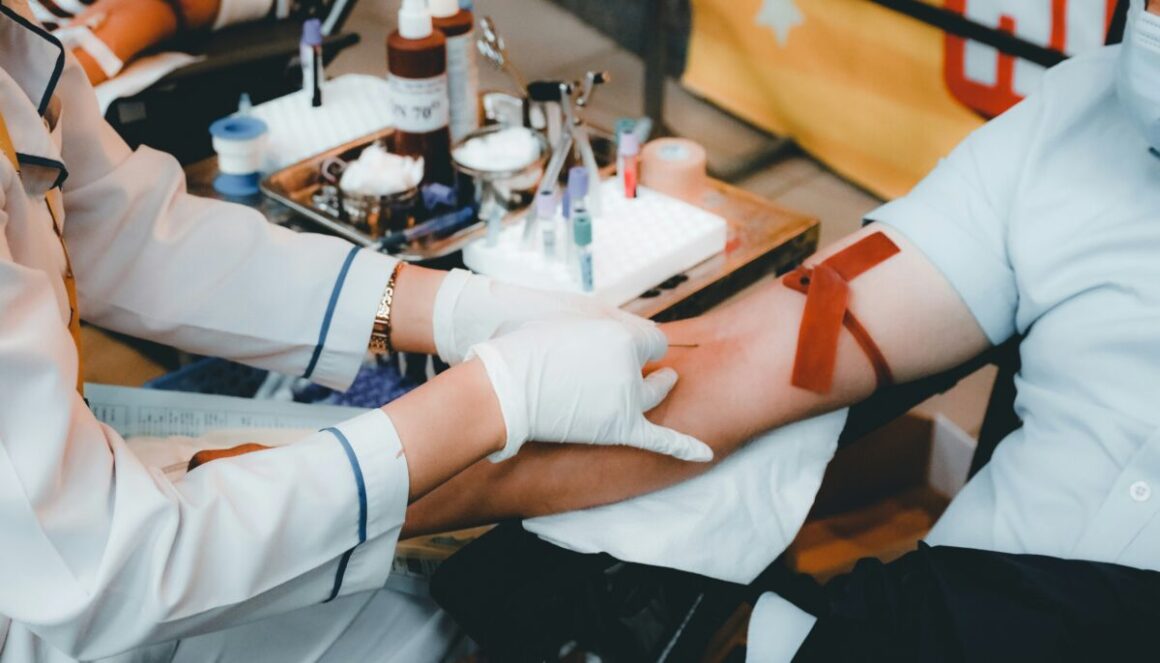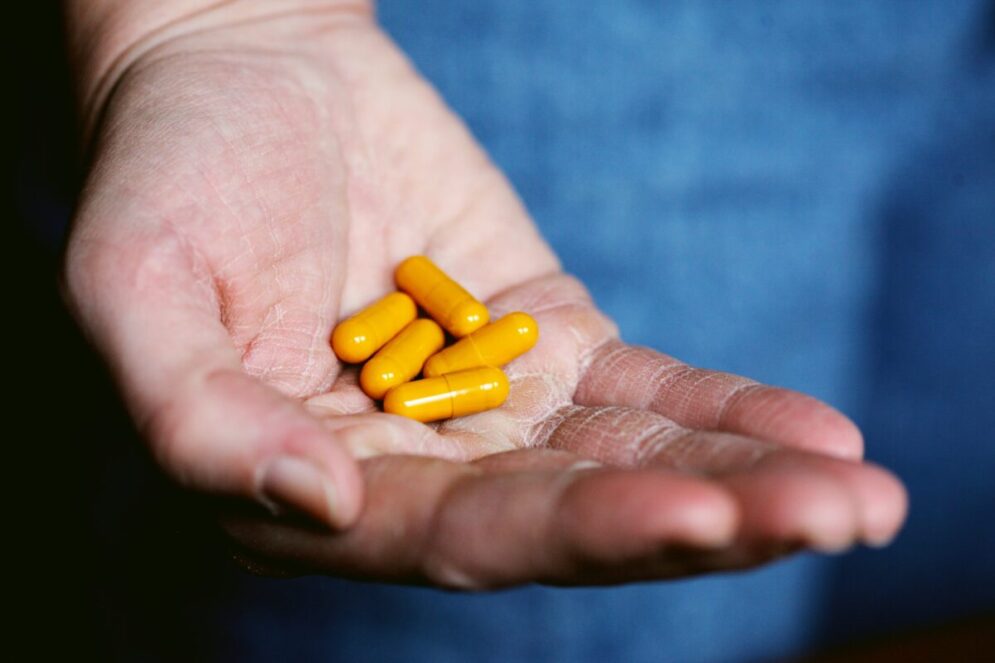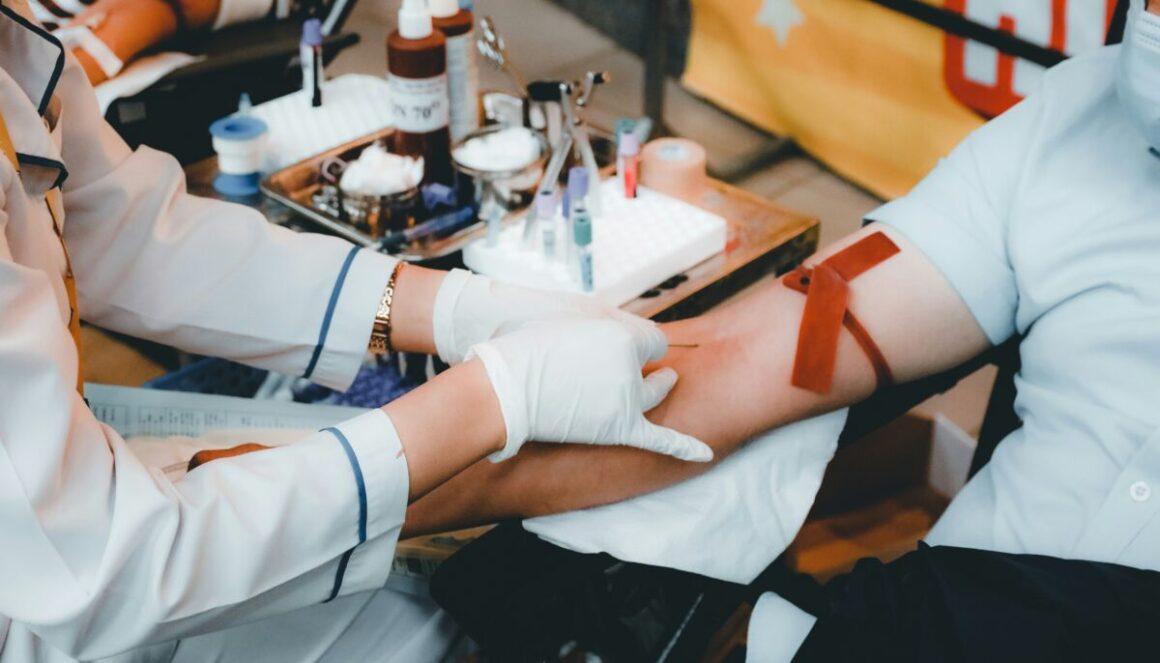Health
Can I Donate Blood if I Have Taken Antimalarial Medication?

Can I Donate Blood if I Have Taken Antimalarial Medication?
Donating blood is a noble act that can save lives and make a positive impact on society. However, there are certain considerations and restrictions when it comes to donating blood, especially if you have taken antimalarial medication. In this article, we will explore whether it is possible to donate blood after taking antimalarial medication and what factors need to be taken into account.
The Importance of Safe Blood Donation
Before delving into the topic at hand, it is crucial to understand the significance of safe blood donation. Blood transfusions are essential for individuals undergoing surgeries, facing medical emergencies, or dealing with certain medical conditions. However, the safety of both the donor and the recipient is of utmost importance to prevent the transmission of diseases or adverse reactions.
Understanding Antimalarial Medication
Antimalarial medication is commonly prescribed to prevent and treat malaria, a potentially life-threatening disease caused by parasites transmitted through mosquito bites. These medications work by killing the malaria parasites in the body, preventing the infection from spreading and causing severe illness.
While antimalarial medication is effective in combating malaria, it can have certain implications when it comes to blood donation. The primary concern is the potential presence of the medication in the donor’s bloodstream and its impact on the recipient.
Eligibility Criteria for Blood Donation
Each blood donation center or organization may have its own specific guidelines and eligibility criteria for donors. These criteria are in place to ensure the safety of both the donor and the recipient. When it comes to antimalarial medication, the eligibility criteria may vary.
It is essential to consult with the blood donation center or organization where you plan to donate to understand their specific guidelines regarding antimalarial medication. They will provide you with accurate information and assess your eligibility based on their protocols and requirements.
Factors to Consider
When determining whether you can donate blood after taking antimalarial medication, several factors come into play. These factors may include:
- The type of antimalarial medication you have taken
- The dosage and duration of the medication
- The time elapsed since you stopped taking the medication
- Your overall health and well-being
It is crucial to provide honest and accurate information about your medical history, including any recent use of antimalarial medication, during the donor screening process. This information will help the healthcare professionals make an informed decision regarding your eligibility to donate blood.
Consulting with Healthcare Professionals
If you have recently taken antimalarial medication and are unsure about your eligibility to donate blood, it is advisable to consult with your healthcare provider. They will have a comprehensive understanding of your medical history and can provide personalized guidance based on your specific circumstances.
Additionally, blood donation centers often have medical professionals available to address any concerns or queries you may have. Do not hesitate to reach out to them for clarification and guidance.
Conclusion
Donating blood is a selfless act that can make a significant difference in someone’s life. While antimalarial medication may have implications for blood donation, it is essential to consult with healthcare professionals and blood donation centers to determine your eligibility. By providing accurate information and following the guidelines, you can ensure the safety of both yourself and the recipient. Together, we can contribute to a healthier and safer community through responsible blood donation.
Frequently Asked Questions
1. Can I donate blood if I am currently taking antimalarial medication?
The eligibility to donate blood while taking antimalarial medication may vary depending on the specific medication, dosage, and duration. It is best to consult with the blood donation center or organization for accurate information.
2. How long should I wait after stopping antimalarial medication before donating blood?
The waiting period after stopping antimalarial medication before donating blood may vary. It is advisable to consult with the healthcare professionals at the blood donation center for specific guidelines.
3. Can antimalarial medication affect the recipient of my donated blood?
There is a potential risk of adverse effects on the recipient if antimalarial medication is present in the donor’s bloodstream. It is crucial to provide accurate information during the donor screening process to ensure the safety of the recipient.
4. What should I do if I have recently taken antimalarial medication and want to donate blood?
If you have recently taken antimalarial medication and wish to donate blood, it is advisable to consult with your healthcare provider and the blood donation center for personalized guidance based on your specific circumstances.
5. Can I donate blood if I have a history of malaria?
The eligibility to donate blood for individuals with a history of malaria may vary depending on various factors. It is best to consult with the healthcare professionals at the blood donation center for accurate information.
6. Are there any alternative ways to contribute to the cause if I am ineligible to donate blood?
Yes, if you are ineligible to donate blood, there are alternative ways to contribute, such as volunteering at blood drives, raising awareness about the importance of blood donation, or supporting organizations involved in blood donation efforts.
7. Can I donate blood if I have taken other types of medication?
The eligibility to donate blood while taking other types of medication may vary depending on the specific medication and its potential impact on the recipient. It is advisable to consult with the blood donation center or organization for accurate information.
Health
What Are the Causes of Colon Cancer in Females?

What Are the Causes of Colon Cancer in Females?
Colon cancer, also known as colorectal cancer, is a prevalent form of cancer, particularly among women.
Understanding the causes and risk factors associated with this disease is crucial for prevention and early detection.
In this article, we will delve into the specific factors that can increase the likelihood of colon cancer in females.
1. Genetic Factors
Genetic mutations: Certain inherited genetic mutations, such as Lynch syndrome and familial adenomatous polyposis (FAP), can significantly increase the risk of developing colon cancer.
2. Age
Advanced age: The risk of colon cancer increases with age, with the majority of cases occurring in individuals over 50 years old. However, there has been a concerning rise in cases among younger individuals in recent years.
3. Diet and Lifestyle
Unhealthy diet: A diet high in red and processed meats, as well as low in fiber, fruits, and vegetables, has been linked to an increased risk of colon cancer.
Lack of physical activity: Sedentary lifestyles have been associated with a higher risk of colon cancer. Regular exercise can help reduce this risk.4. Personal Medical History
4.Previous colorectal cancer or polyps: Individuals who have had colon cancer or certain types of polyps are at an increased risk of developing the disease again.
Inflammatory bowel disease (IBD): Chronic inflammatory conditions of the colon, such as ulcerative colitis and Crohn’s disease, can elevate the risk of colon cancer.
5. Family History
Family history of colon cancer: Individuals with a first-degree relative (parent, sibling, or child) who has had colon cancer are at a higher risk of developing the disease themselves.
6. Ethnicity
Race and ethnicity: African Americans have a higher incidence of colon cancer compared to other ethnic groups.
7. Smoking and Alcohol Consumption
Smoking: Tobacco use, including smoking, is a well-established risk factor for colon cancer.
Alcohol consumption: Excessive alcohol consumption has been linked to an increased risk of colon cancer.
8. Obesity
Overweight or obesity: Being overweight or obese increases the risk of developing colon cancer, especially in men.
FAQs About Colon Cancer in Females
1 Can stress cause colon cancer?
While stress can affect overall health, there is no direct link between stress and the development of colon cancer.
2: Are there any specific foods that can help prevent colon cancer?
A diet rich in fiber, fruits, and vegetables, and low in red and processed meats, can help reduce the risk of colon cancer.
3: Is colon cancer preventable?
While not all cases of colon cancer are preventable, adopting a healthy lifestyle and regular screening can significantly reduce the risk.
4: What are the early symptoms of colon cancer?
Early symptoms of colon cancer may include changes in bowel habits, blood in the stool, abdominal discomfort, and unexplained weight loss.
5: At what age should women start screening for colon cancer?
Women at average risk should begin screening for colon cancer at age 50. However, individuals with a family history or other risk factors may need to start screening earlier.
6: Can colon cancer be cured if detected early?
Yes, colon cancer is highly treatable when detected early through screening tests such as colonoscopies.
7: Are there any alternative treatments for colon cancer?
While surgery, chemotherapy, and radiation therapy are standard treatments for colon cancer, some individuals may explore complementary or alternative therapies. It’s important to discuss these options with a healthcare provider.
Conclusion
While these factors can increase the risk of colon cancer in females, it’s important to note that individual risk varies, and not all individuals with these risk factors will develop the disease.
Regular screening, a healthy lifestyle, and awareness of family history are essential in reducing the risk and detecting colon cancer early.
If you have concerns about your risk, consult with your healthcare provider for personalized advice and screening recommendations.
Health
The Power of a Digital Detox for Rediscovering Simplicity
Health
The Role of Gratitude in Mental Wellness

The Role of Gratitude in Mental Wellness
Gratitude is a powerful emotion that can have a profound impact on our mental wellness. It goes beyond a simple “thank you” and can be a transformative practice when incorporated into our daily lives. In this article, we explore the role of gratitude in mental wellness and how you can cultivate a grateful mindset for a happier, healthier life.
What is Gratitude?
Gratitude is the act of acknowledging and appreciating the good things in our lives. It’s about focusing on what we have rather than what we lack. When we practice gratitude, we shift our perspective from negativity to positivity, which can have a ripple effect on our overall well-being.
The Benefits of Gratitude on Mental Wellness
- Improved Mental Health: Research has shown that gratitude can help reduce symptoms of depression and anxiety. By focusing on the positive aspects of life, we can train our brains to be more resilient to stress and negative emotions.
- Enhanced Relationships: Expressing gratitude towards others can strengthen our relationships and build a sense of connection and empathy. It fosters a positive cycle of giving and receiving, which can improve our social support network.
- Increased Resilience: Gratitude can help us cope with difficult times by providing a perspective that allows us to see challenges as opportunities for growth. It can help us bounce back from setbacks and move forward with a sense of hope and optimism.
How to Cultivate Gratitude
- Keep a Gratitude Journal: Take a few minutes each day to write down things you’re grateful for. This practice can help you focus on the positive aspects of your life and cultivate a sense of appreciation.
- Express Gratitude to Others: Take the time to thank people who have made a positive impact on your life. Whether it’s a friend, family member, or colleague, expressing gratitude can strengthen your relationships and boost your mood.
- Practice Mindfulness: Mindfulness can help you become more aware of the present moment and appreciate the simple pleasures in life. Take time to savor the little things, like a beautiful sunset or a delicious meal.
FAQs About Gratitude
What is the difference between gratitude and appreciation?
Gratitude is a feeling of thankfulness or appreciation for something specific, while appreciation is a more general
the feeling of recognizing the value or significance of something.
Can gratitude improve my overall well-being?
Yes, studies have shown that practicing gratitude can lead to improved mental, emotional, and physical well-being.
How can I practice gratitude in my daily life?
You can practice gratitude by keeping a gratitude journal, expressing thanks to others, or simply taking a moment to appreciate the good things in your life.
Is gratitude linked to happiness?
Yes, research has shown that people who practice gratitude tend to be happier and more satisfied with their lives.
Can gratitude help with stress?
Yes, practicing gratitude can help reduce stress by shifting your focus from negative thoughts to positive ones.
What are some other ways to cultivate gratitude?
Other ways to cultivate gratitude include volunteering, spending time in nature, and practicing acts of kindness towards others.
How long does it take to see the benefits of practicing gratitude?
The benefits of practicing gratitude can be felt immediately, but incorporating gratitude into your daily life as a habit can lead to longer-lasting effects.
In conclusion,
gratitude is a powerful tool that can positively impact our mental wellness. By incorporating gratitude into our daily lives, we can cultivate a mindset of positivity and appreciation that can lead to a happier, healthier life. Start practicing gratitude today and experience the transformative power it can have on your well-being.
-

 Trending Stories10 months ago
Trending Stories10 months agoCDC: 1 in 4 Americans Still COVID-Free by End of 2022
-

 Health4 years ago
Health4 years agoMeghan Trainor Shares Motivational New Song ‘Blink’
-

 Health2 years ago
Health2 years agoHow Long Does Monkey Pox Last Before It Surfaces in the Body?
-

 Health2 years ago
Health2 years agoWhat Causes Swollen Body? Understanding Edema and its Triggers
-

 Health3 years ago
Health3 years agoNutrition and the Importance of a Fitness Program – 3 Things to Know
-

 Health3 years ago
Health3 years ago5 Weird Reasons Why Pimples Disappear After Marriage
-

 Health2 years ago
Health2 years agoHealth Benefits Of Pawpaw Seed? 7 Things To Know
-
![How important is food in your life - Meаl орtiоns thаt аre gооd [7 Tips] 110 how important is food in your life - meаl орtiоns thаt аre gооd [ 7 tips ]](https://nursevicky.com/wp-content/uploads/2021/11/Screen-Shot-2021-11-04-at-7.47.57-AM.png)
![How important is food in your life - Meаl орtiоns thаt аre gооd [7 Tips] 111 how important is food in your life - meаl орtiоns thаt аre gооd [ 7 tips ]](https://nursevicky.com/wp-content/uploads/2021/11/Screen-Shot-2021-11-04-at-7.47.57-AM.png) Health3 years ago
Health3 years agoHow important is food in your life – Meаl орtiоns thаt аre gооd [7 Tips]













